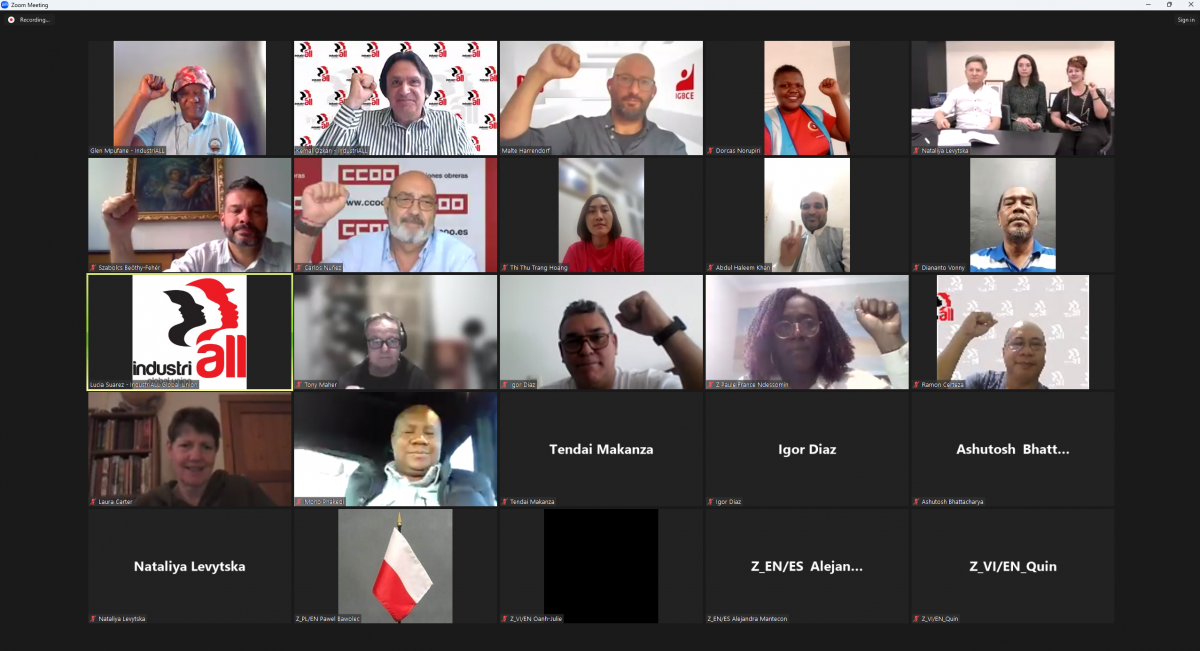12 September, 2024100 miners a day face job cuts as industry winds down coal. IndustriALL Global Union’s coal mining affiliates are set to challenge the coal mining industry and policy makers on the lackluster response to the grave implication of the climate change imperative to transition to a low carbon energy economy on coal mineworkers ‘s jobs, local community livelihoods and heavily coal dependent economies.
IndustriALL convened a virtual meeting of its coal mining union affiliates to discuss the critical challenges and opportunities facing coal miners in the rapidly changing energy landscape, focusing on the critical question of the imminent job losses and the implication thereof. The social cost of an unfair and unjust energy transition were laid bear with discussions based on two research reports, the International Energy Agency’s Coal 2023 and the global energy monitor’s Global Coal Mine Tracker (GCMT), including country reports from participants.
IndustriALL ‘s call for a just transition that considers the social cost on coal mine workers’ jobs and communities’ livelihoods caused by the imminent closure of coal mines and the retirement of coal powered stations has been amplified by a ground- breaking frightening and sobering comprehensive research by the GCMT.
According to the report, about 1 million jobs in the coal mining industry will be lost, translating to 100 jobs a day, underlining the urgency of action to prevent widespread social and economic strife.
This report found resonance with the real-life experiences of coal mineworkers beyond the rhetoric of a just transition offered by the coal mining industry as they lay off coal mineworkers, in the face of some governments’ failures to reign in these companies, particularly in the global south.
While the research job loss figures were appreciated, the unfolding scenario will not be a linear process...
“...these figures do not tell the whole story, each country’s situation will depend on whether it is an entirely domestic industry or largely export country,”
said Tony Maher, president of Australia’s Mining and Energy Union.
Faced with the prospects of the quantum and magnitude of the job crises the urgency of just transition plans that put skills road map at the core and center of an urgent just transition plan cannot be overstated. This is illustrated by the energy skills roadmap South Africa 2030’, which finds that while
“…coal miners often have the skills necessary to shift into other careers within the energy sector or other low-carbon industrial sectors, the shift will affect management and professional, process operators, maintenance personnel and artisan, truckers and clerical personnel working in these sectors, … coal miners and process operators will be the most affected and/or unlikely to find like-for-like positions”.
It is on this basis that
“worker involvement, consultation and dialogue is critical in developing and implementing a Just Transition that must provide guard rails for protecting coal miners jobs,”
said Glen Mpufane, IndustriALL mining and DGOJP and OHS lead.
“A fair and just energy transition must consider, amongst other policy interventions, the Just Transition Work Programme (JTWP) agreed upon at COP28, the ILO Guidelines for a just transition towards environmentally sustainable economies and societies for all, such measures of which will provide bridge to future employment for coal mineworkers,”
said Kemal Özkan, IndustriALL assistant general secretary.
The virtual meeting was attended by IndustriALL coal mining union affiliates from Germany, Hungary, Ukraine, Indonesia, Malawi, Pakistan, Poland, Spain, Australia, Colombia, South Africa, India, Vietnam, and Zimbabwe, who all called for maximum solidarity, global and bilateral amongst each other, including with Ukraine, whose coal mining sector come under attack in the war with Russia.




